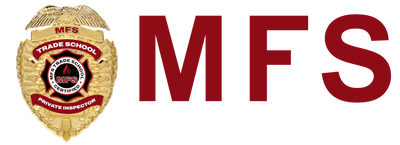5 Key Benefits of Hands-On Learning in Trade Education

In today's rapidly evolving workforce, hands-on learning has emerged as a crucial component of trade school education. This practical approach to training equips students with the real-world skills and experience necessary to excel in their chosen careers.
Trade schools across the country have embraced hands-on learning as a means to bridge the gap between theoretical knowledge and practical application. By providing students with opportunities to work directly with the tools, materials, and equipment used in their respective trades, these institutions are setting the stage for success in the competitive job market.
The benefits of hands-on learning in trade school education are numerous and far-reaching. From fostering problem-solving skills to increasing knowledge retention and career readiness, this approach to education has proven to be a game-changer for aspiring professionals in various industries.
What is Hands-On Learning in Trade Education?
Hands-on learning is a training approach that emphasizes practical, real-world experience. In trade school settings, this means students engage directly with the tools, materials, and equipment used in their chosen trade—whether it's welding, plumbing, electrical work, or restaurant equipment maintenance services like we offer at MFS Trade School.
This immersive learning style is a cornerstone of trade school education. It allows students to gain a deep understanding of their craft by applying theoretical concepts to real-life situations. Through hands-on training, students develop muscle memory, hone their skills, and build confidence in their abilities.
Unlike traditional classroom learning, which often relies on lectures and textbooks, hands-on learning in trade schools is designed to simulate real-world work environments. Students learn by doing, making mistakes, and problem-solving in a safe, controlled setting. This approach not only makes learning more engaging and memorable but also prepares students for the challenges they will face in their future careers.

Develops Real-World Problem-Solving Skills
Hands-on learning fosters crucial problem-solving abilities by placing trade school students in environments that closely resemble actual job sites. This method encourages them to address real-world challenges, requiring innovative solutions and quick thinking. Through this practical exposure, students learn to navigate the complexities inherent in their trades, such as adjusting to unexpected variables and client requirements.
This educational approach promotes a dynamic mindset where students are urged to explore various solutions to problems. For instance, when working on an electrical installation, a student might need to consider both the physical layout and the safety regulations simultaneously. This kind of experimental learning nurtures flexibility and adaptability, qualities essential for success in ever-changing work conditions.
Additionally, hands-on training builds a solid foundation of confidence as students gain experience making decisions in realistic scenarios. By repeatedly addressing and solving issues, they become more skilled at assessing situations and taking decisive action. This confidence is invaluable in professional settings, where the ability to act quickly and efficiently can distinguish a competent tradesperson from their peers.
Provides Mentorship Opportunities with Experienced Instructors
Trade school education offers invaluable mentorship opportunities through experienced instructors who have extensive industry knowledge. These professionals have refined their skills over years of practice, making them ideal guides for students delving into the complexities of their trades. By engaging with instructors, students gain insights that extend beyond typical coursework, effectively linking theoretical concepts to practical applications.
Instructors play a critical role in conveying not just technical skills but also industry insights that are vital for success. They instruct students on best practices, safety measures, and effective methods—insights that are grounded in real-world experience. This mentor-student relationship creates an environment where inquiry is welcomed, transforming learning into a collaborative effort. Students benefit from tailored feedback, which sharpens their capabilities and boosts their confidence in tackling tasks.
Additionally, the mentorship component frequently opens doors to networking and employment avenues. Instructors, with their extensive industry connections, can introduce students to potential employers or advocate for them in job placements. This networking not only bolsters career opportunities but also highlights the significance of professional relationships. As students transition to their careers, the mentorship they receive serves as a crucial support, guiding them into their professional journey.
Emphasizes Safety Training in Simulated Work Environments
Incorporating safety training within realistic simulations is a critical element of trade education, addressing the inherent risks of various trades. This approach allows students to familiarize themselves with the necessary safety measures before they transition to actual job sites. By engaging in these controlled exercises, students develop a keen understanding of safety protocols that they will carry into their professional environments.
Within these simulated settings, students gain practical exposure to potential hazards and learn to implement industry-specific safety strategies. This includes the correct use of personal protective equipment, adherence to operational guidelines, and the execution of emergency procedures. Such hands-on practice fosters a proactive safety culture, embedding cautious behavior that becomes instinctive over time.
The focus on safety training not only equips students with the knowledge to protect themselves but also benefits employers and clients by fostering safer work environments. Graduates who are adept in safety protocols contribute to minimizing workplace incidents, which is a significant advantage for employers seeking to uphold stringent safety standards. This preparedness ensures that students are not only skilled but also conscientious professionals, aligning with industry expectations and enhancing their employability.
Fosters Teamwork and Collaboration
Trade school programs use collaborative projects to mirror the teamwork needed in professional settings. By involving students in shared tasks, these programs encourage participants to harness the varied skills and insights of their peers. This approach creates a learning environment where cooperation is key and where students actively engage in group problem-solving.
In these settings, students practice vital skills such as effective communication, task delegation, and the integration of diverse contributions into a unified project. These experiences are crucial for developing the interpersonal skills needed in the workplace, where successful collaboration often determines project outcomes. The ability to work well with others is critical for achieving success in team-based environments.
Additionally, the connections made through these collaborative efforts can form a professional network that supports career advancement. Relationships built during trade school—whether with classmates or mentors—can evolve into valuable professional contacts. These networks offer ongoing support, guidance, and opportunities, highlighting the lasting impact of teamwork and collaboration nurtured during hands-on education.

Increases Knowledge Retention and Career Readiness
Engaging in practical activities within trade education greatly enhances the retention of skills and information. Research indicates that learners retain a substantial 75% of knowledge through practice, a stark improvement over the 10% retention rate associated with reading alone. This highlights the effectiveness of experiential learning in cementing both understanding and recall.
Direct interaction with tools and equipment relevant to specific trades strengthens both familiarity and expertise. This hands-on approach ensures that students are not only proficient in their use but also adept at resolving practical challenges. For instance, students who gain experience in operating kitchen exhaust hood cleaning equipment learn the nuances of the task—preparing them for success in this sought-after service. Such comprehensive training is essential for entering the workforce with the self-assurance to tackle job responsibilities effectively from the outset.
Additionally, completing a practical certification program serves as a robust indicator of a student's readiness for employment. These certifications provide concrete validation of a student's ability to meet industry expectations, offering a significant advantage in the competitive job landscape. Employers often prioritize candidates who demonstrate both practical skill and professionalism, attributes that are honed through thorough hands-on training. This blend of theoretical insight and practical proficiency ensures that trade school graduates are well-equipped to embark on their careers with confidence and competence.
By embracing hands-on learning, trade schools are revolutionizing education and empowering students to succeed in their chosen careers. As the demand for skilled professionals continues to grow, investing in practical, immersive training has never been more important. If you're ready to take the next step in your career journey, request more information about training programs and certifications from us today, and let us help you unlock your full potential in the thriving world of skilled trades.






